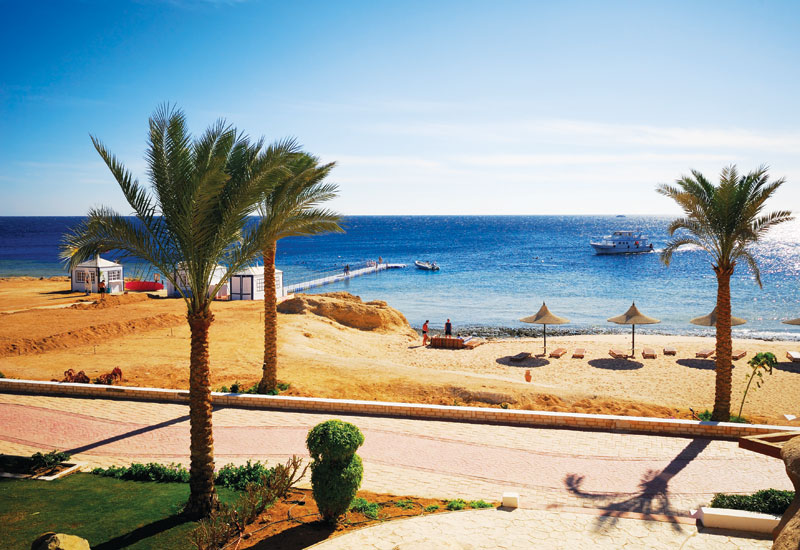 The coastal resort of Sharm El Sheikh on the Red Sea. Hoteliers report that due to the drop in tourist numbers the amazing underwater life in the Red
The coastal resort of Sharm El Sheikh on the Red Sea. Hoteliers report that due to the drop in tourist numbers the amazing underwater life in the Red
Tourism to Egypt took a major hit in the aftermath of the revolution, but authorities are now doing all they can to safeguard the influx of GCC visitors this summer. Kathi Everden reports on Egypt’s tourism recovery
After the euphoria of the January 25 revolution toppling the rule of Hosni Mubarak, the travel industry in Egypt is still counting the cost, and the impact will linger into early 2012 as mass markets from Europe in particular turn to alternative sun destinations.
For the upcoming summer season, where regional visitors have tended to lift occupancies particularly in city hotels, the outcome of last minute incentives and consumer marketing campaigns is in question, but given the last-minute nature of the market, hoteliers and agents are cautiously optimistic that business will come good.

| Advertisement |
From the top, the Egyptian Tourism Authority (ETA) has been active with a dedicated marketing campaign aimed at the regional Arab market.
First assistant minister of tourism, HE Hesham Zaazou explains the strategy: “Because we do not have a network of offices or a presence of the Egyptian Tourism Authority here [in the Gulf], we are depending more on above-the-line promotions — with television, press, online and poster advertising to stimulate the market in the Arab world,” he says.
“We are working with the JWT agency in Cairo and their network across the region on a PR campaign, inviting media as well as the travel trade to come to Egypt and experience it.”
Initiatives designed to cater to the needs of the pre-eminent European market have included incentives for charter operations — offering payments for empty seats to guarantee profitability, as well as joint marketing with tour operators — a measure the ETA has implemented for several years with more than 180 companies.
However, Zaazou acknowledges that a lack of information about this potential support has been a cause for concern in the Arab world:
“We have had little response from the offer of charter incentives and nothing has happened concerning the offer of dollar-for-dollar marketing,” he admits. “But this is partly due to the fact the trade does not know what we are offering.”
“In countries such as Jordan and Saudi Arabia, we are seeing some business, with a trial charter from Amman last month for instance which might be extended through out the summer,” he adds.








 Search our database of more than 2,700 industry companies
Search our database of more than 2,700 industry companies









